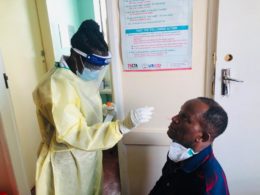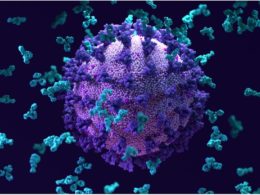The use of rapid antigen tests has gained extensive acceptance as another method for diagnosis of Covid-19 outside of health facilities across the globe.
Below we explain the Antigen Test:
What is the Antigen Covid-19 Test?
· This is a Covid-19 test that detects certain proteins in the virus. Using a long nasal swab to get a fluid sample, some antigen tests can produce results in minutes. Others may be sent to a lab for analysis.
· Rapid antigen tests target the SARS-CoV-2 nucleocapsid protein, the most abundant protein expressed by the virus.
· They directly assess for the presence of viral proteins, making them different from serology tests, which look for antibodies produced by the host in response to the infection. As a result, rapid antigen tests assess for acute infection only, not prior infection or response to vaccination.
· These tests differ from molecular tests such as PCR because they are designed to detect the presence of viral proteins using simple immunochromatography methods, commonly referred to as lateral flow assays.
· A positive antigen test result is considered accurate when instructions are carefully followed.
Advantages of Antigen Tests
· Testing can be deployed outside of hospital laboratories, and many can be performed by members of the general public.
· They are relatively inexpensive relative to PCR and simple to interpret.
· They have a turnaround time as fast as 15 minutes, allowing for testing prior to entrance into congregate-care facilities or other public settings.
· They are compatible with samples taken from the anterior nares rather than the nasopharynx, making them more comfortable for serial testing.
Antigen compared to PCR Test
· A major difference between rapid antigen tests and RT-PCR is the difference in the analytic sensitivity of the assay.
· Typically, the sensitivity of antigen tests is 30% to 40% lower than for PCR, depending on whether tested subjects were symptomatic or asymptomatic (Cochrane Library, March 2021).
· However, lower sensitivity has both disadvantages and benefits.
· The primary disadvantage is a risk of falsely negative results in people with low viral loads who may be early in their infection and who go on to spread it to others in subsequent days.
· However, in practice, this subpopulation represents just a small fraction of those tested, and risk can be mitigated through serial testing algorithms.
· A major advantage of these assays is the lower likelihood of detecting residual viral nucleic acid left over from a remote infection in recovered individuals (Mina, November 2020).
· This reduces the chance of unnecessary initiation of isolation and quarantine precautions and subsequent rounds of testing.








